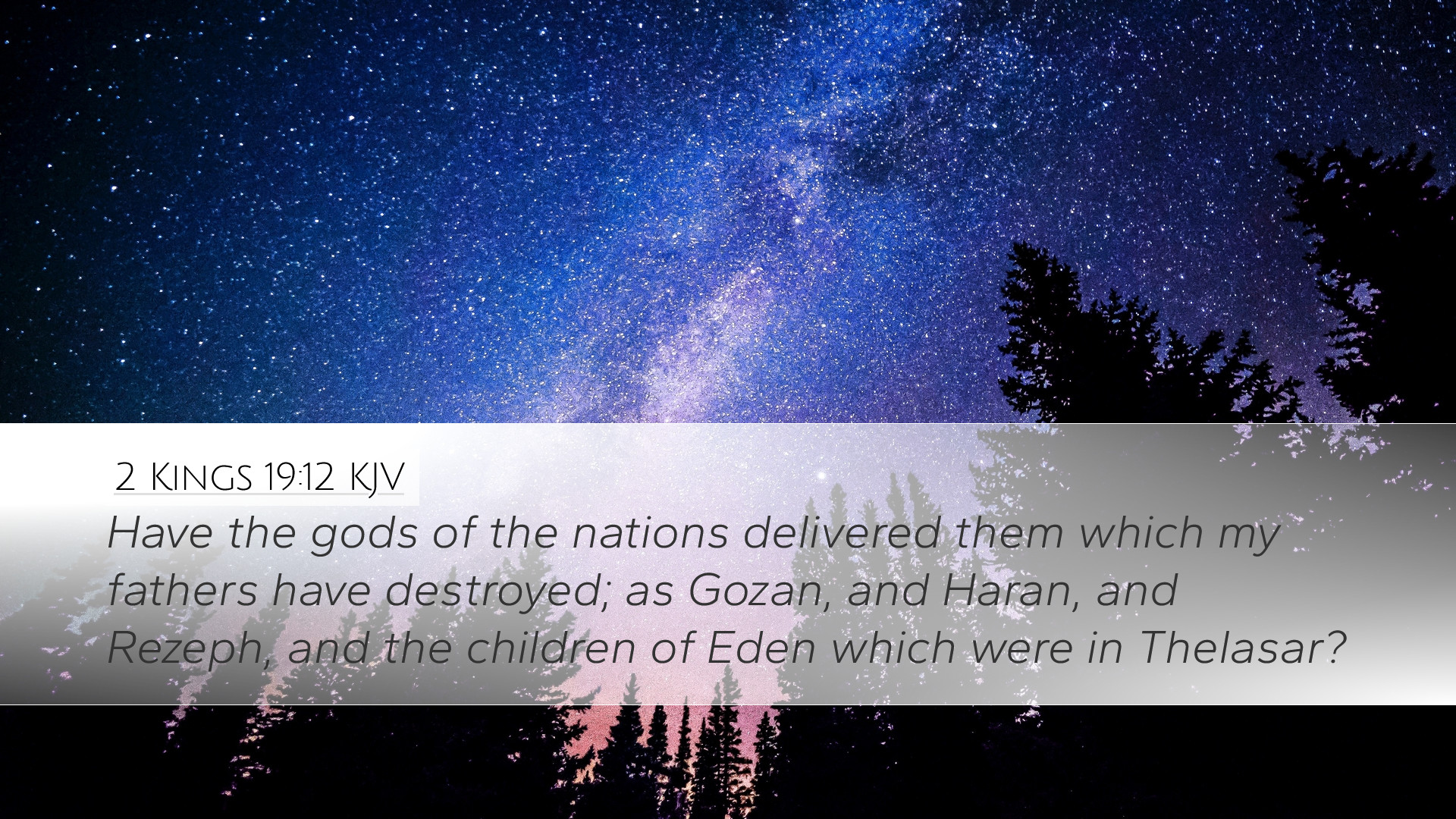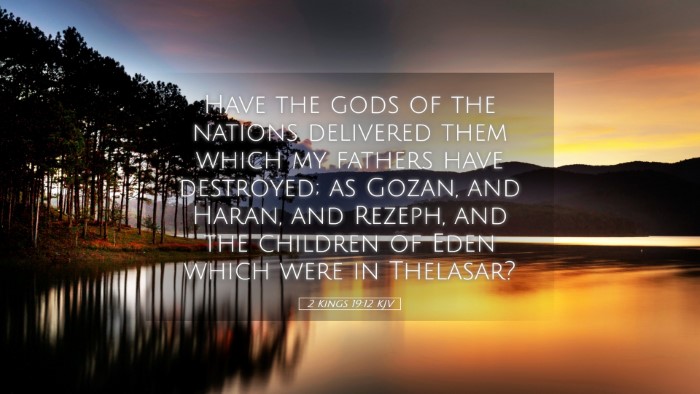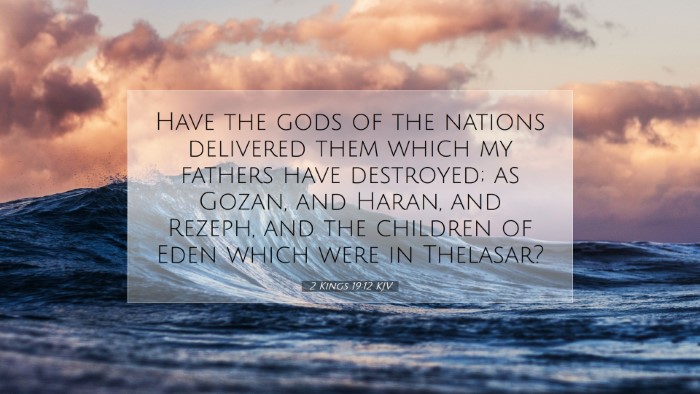Commentary on 2 Kings 19:12
Verse: "Have the gods of the nations delivered them which my fathers have destroyed, as Gozan, and Haran, and Rezeph, and the children of Eden which were in Telassar?"
Introduction
This verse finds itself within a critical juncture in the narrative of 2 Kings, where the Assyrian king, Sennacherib, challenges the God of Israel by comparing Him to the defeated gods of other nations. This verse offers a profound insight into the nature of faith, the sovereignty of God, and His power over all nations.
Contextual Background
Before delving into the commentary, it is imperative to understand the context of 2 Kings 19. Sennacherib has laid siege to Jerusalem and sends messengers to intimidate King Hezekiah of Judah. The references made by Sennacherib to the gods of the nations reflect the Assyrian perspective on divine power and its relationship to territorial conquest.
Assyrian Conquest
Sennacherib boasts of his victories over other kingdoms, highlighting how the gods of those nations were unable to save them. His references to specific locations like Gozan, Haran, and Rezeph indicate a historical record of defeated powers. This serves to instill fear in Jerusalem's inhabitants.
Commentary from Matthew Henry
Matthew Henry observes that Sennacherib's arrogance in challenging the God of Israel was rooted in a misunderstanding of divine sovereignty. He accentuates that this verse is a stark illustration of the folly of dismissing God's power based on earthly circumstances. Henry also emphasizes that the gods worshipped by these nations were mere idols, devoid of any true power or agency to save their people.
Commentary from Albert Barnes
Albert Barnes elaborates on Sennacherib's assertion by pointing out that the names mentioned signify both geographical locations and the collective failure of polytheism. He indicates that the mention of Telassar implies a broader coalition of nations that could not protect their own. Barnes interprets this as a direct challenge to the faith of the Israelites, urging them to notice the contrast between the idols and the living God who has declared Himself as their protector.
Commentary from Adam Clarke
Adam Clarke offers a deeper semantic analysis of the verse, stating that it reflects a theologically significant crisis of faith. He notes that Sennacherib operates under a limited understanding of God's nature—thinking Him comparable to the other deities which had failed their worshippers. Clarke also points out that God's ability to deliver His people was fundamentally different from the experiences of those who worshipped false gods.
Theological Implications
The Sovereignty of God: The verse encapsulates the theme of God’s unmatched sovereignty. Unlike the powerless idols of defeated nations, the Lord stands as the ultimate authority over all creation. This encourages pastors and theologians to affirm the doctrine of God's sovereign rule amidst chaos.
Faith in Adversity: Sennacherib’s proclamation serves as a challenge to the faith of Hezekiah and the people of Judah. Spiritual leaders can draw from this to highlight the importance of steadfastness in faith during trials, teaching that even in dire situations, believers are called to trust in the God who delivers.
Confrontation of Idolatry: The rhetorical question posed by Sennacherib reflects not only a challenge but also the narrative's backdrop of Israel’s struggle against idolatry. This invites a broader reflection on the modern context where various forms of idolatry may exist, encouraging congregational leaders to instruct their communities on the dangers and deceptions of false gods.
Conclusion
In sum, 2 Kings 19:12 serves as a powerful reminder that faith is often tested through adversity. The challenge posed by Sennacherib, rooted in historical context and theological misunderstanding, elevates the narrative to a discourse on the character of God against the backdrop of human failings. For pastors, students, and theologians, this verse calls for a deep engagement with the text, encouraging a reflection on faith's resilience, the nature of true worship, and the authority of God over all history.
References
- Matthew Henry's Commentary
- Albert Barnes' Notes on the Whole Bible
- Adam Clarke's Commentary on the Bible


